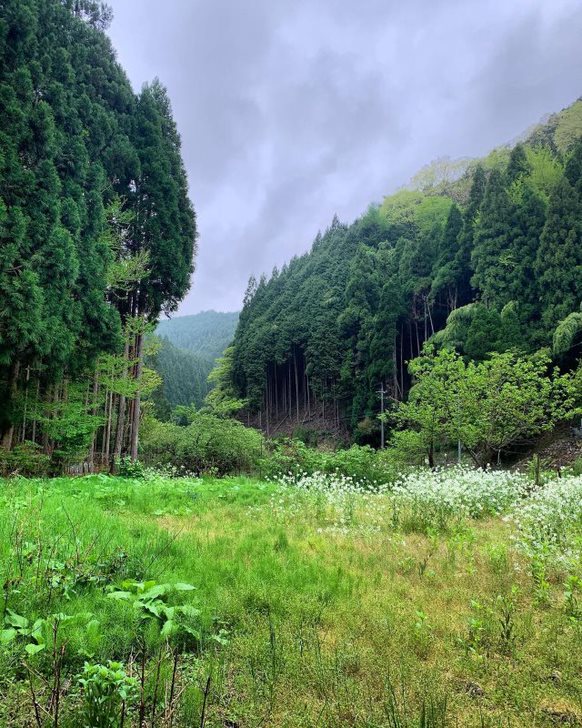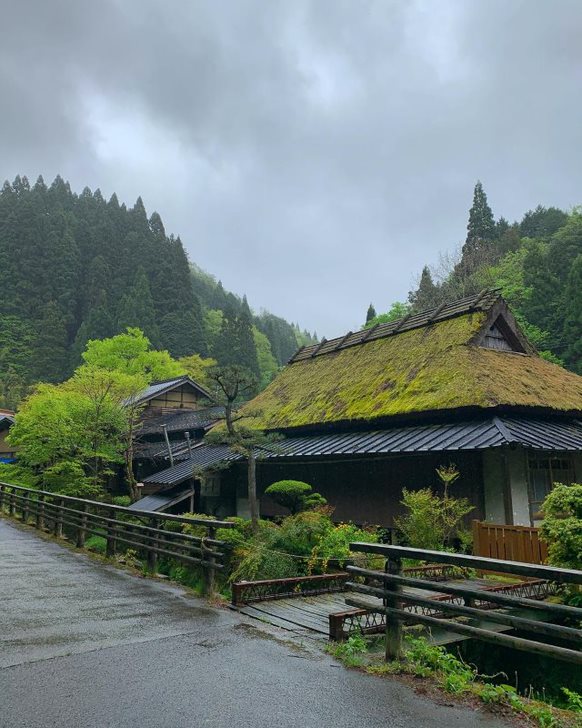By Josko Kozic
Hi there, my name is Josko. I live in Yokohama, and I am currently conducting research for a PhD thesis about contemporary Shugendo, a Japanese religious tradition focusing on mountain worship. I would like to give you some insights into my recent fieldwork in one of Japan’s least populated places: the Sanin region and Tottori in particular.
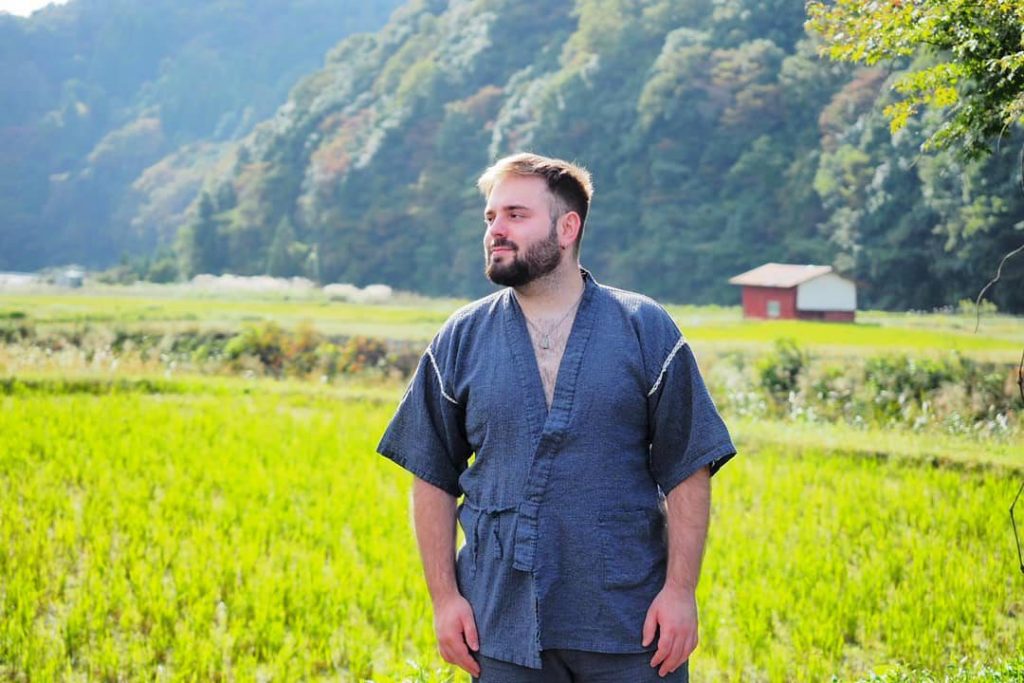
Tottori is famous for its vast sand dunes, beautiful emerald-green coasts and its huge Mt Daisen. The region also has an abundant agriculture with seafood and vegetables being the main products. Additionally, Tottori has several Sake breweries and indigo plantations used for traditional dyeing. Often, they are located in old and cozy post-station towns (shukuba machi). Apart from this, people in Tottori are proud of the prefecture’s deep and wide forests, mainly consisting of cedar, cypress and breech trees (buna). Hidden inside these forests, there are countless waterfalls with some of them ranked as Japan’s most beautiful.
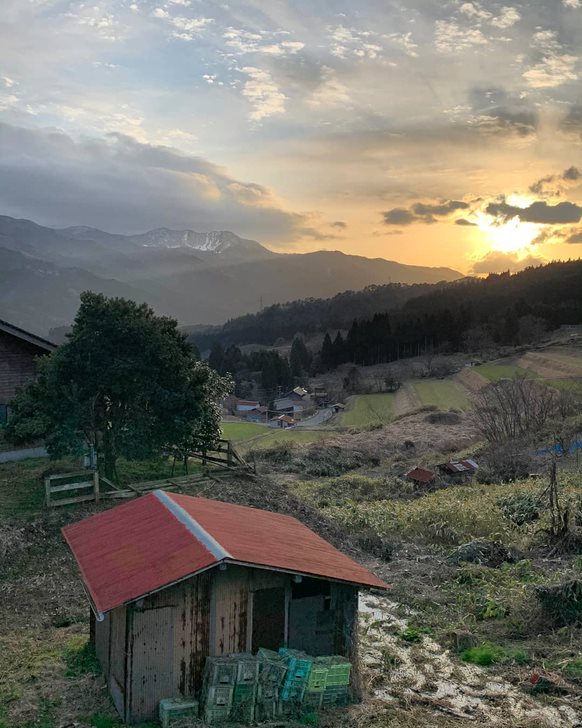
Copyright©Josko Kozic 2021
Whenever I travel to the area, I like to make a stop at a michi no eki, government-designated rest areas including shops selling regional products. It was at one of these shops where I first stumbled upon pamphlets promoting rural life and agriculture in Tottori. After doing some research online, I found out that many communities have their own websites and offer online talks providing information on how to resettle and start a life there. I realized that the image and promotion of rural life through online and print media is changing and rural life has become a popular subject in recent times.
During my stay in Tottori in spring 2020, I approached the biggest agency directed at people considering relocation to the prefecture, providing them with advice and basic information. This agency called Furusato Tottori-ken teijū kikō is a public interest incorporated foundation (kōeki zaidanhōjin) and welcomed me at their bureau, kindly providing me with detailed data collected over the last few years about U- and I-turners who moved to Tottori prefecture in the past. They also gave me a ”Tottori Guidebook” with a vast overview of all towns and districts of the region, including interviews with new settlers and locals, promoting Tottori as the ”kingdom of child-rearing” (kosodate ōkoku). One of the staff members in charge told me that, while there was no remarkable impact on the numbers since the pandemic (interview held in January 2021), things still could be changing drastically soon.
I chose the charming mountain village of Chizu for further investigations, since the place aroused my interest for its self-promotion as an officially approved designation for ”forest therapy”. Chizu has a large number of lush, green forests and almost-abandoned settlements, such as the enchanted village of Itaibara the town proudly promotes as a ‘primeval landscape’ (genfūkei) in their pamphlets. At the municipal office of Chizu town, I had an appointment with a young member of the planning division who handed me several pamphlets and information about upcoming online events where topics like moving to, living and working in rural Japan were explained. I instantly connected and followed all the mentioned pages on social network platforms such as Instagram or Line to get a better understanding of how several options for resettling are being communicated. Up to this day, I constantly receive news and updates concerning settling and living in Tottori. The person in charge at Chizu’s municipal office also introduced me to their special facilities where people can stay for a ‘trial living in the countryside’, while being accommodated in houses and lodges which are administrated by both the town office and by the locals.
Copyright©Josko Kozic 2021
Tottori city’s big relocation agency as well as Chizu town’s municipal office show great effort in promoting their regions as places worth to live in. However, their focus lies predominantly on recruiting young couples who they consider as settlers most likely to contribute to the local communities. Keeping in mind depopulation, it makes sense for communities to prefer young families. Nevertheless, it is worth mentioning that in the course of my research so far, I have met several U- and I-turners who resettled as singles without getting married or giving birth to children, but who contribute to their communities nonetheless.
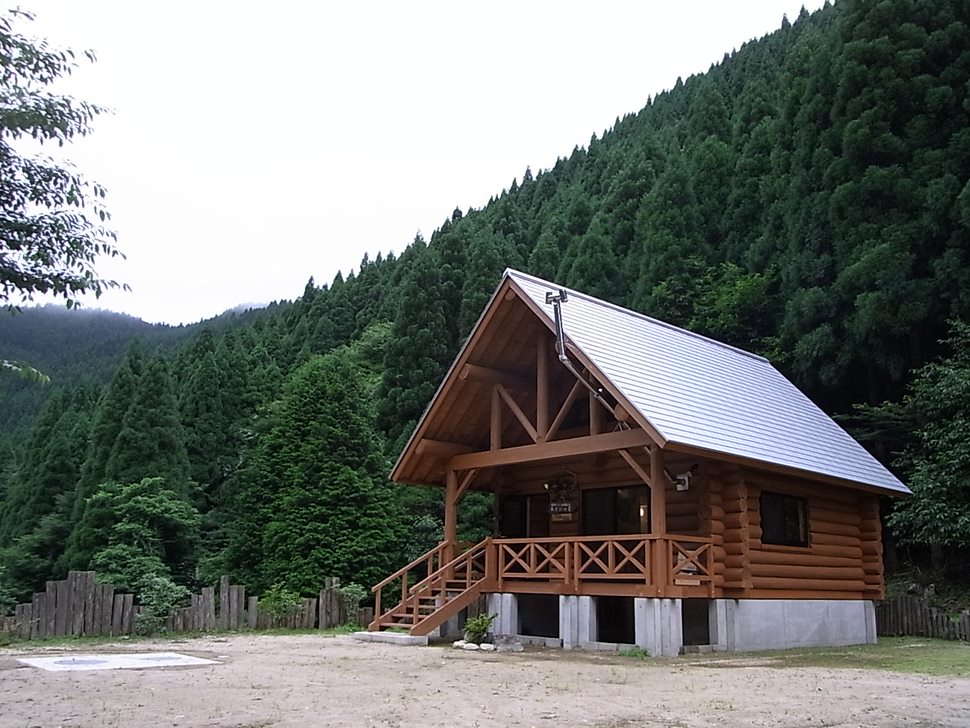
Copyright©Josko Kozic 2021
It remains to be exciting to observe the ongoing tendencies of promoting rural-life in Tottori and I am looking forward to share further insights with you soon.
Josko Kozic (MA) moved to Japan five years ago after graduating in Japanese & Southeast Asian Studies at Goethe University in his hometown Frankfurt. He currently resides in Yokohama while working on his PhD thesis about contemporary Shugendo (a Japanese religious tradition). He is affiliated with the faculty of Religious studies at Heidelberg University.

